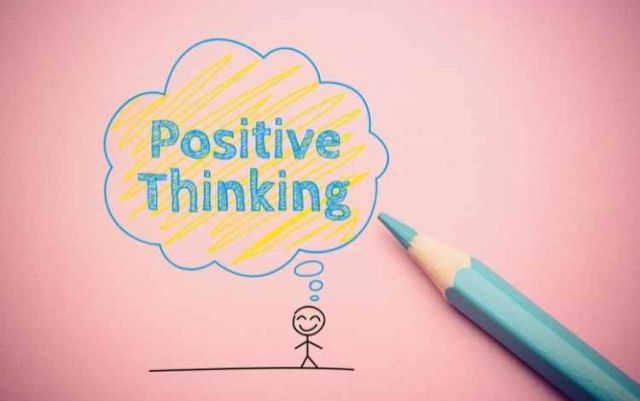
Knowing how to sell is arguably the most important life skill. Knowing sales isn’t only important for sales personnel. It’s also important for entrepreneurs, marketers, employees, etc.
For instance, let’s assume you are a fresh college graduate. You have applied to a few places and received an interview call from one. During the interview, they ask about your future plans, strengths, and ambitions.
This interview effectively requires you to sell yourself as a person and potential employee to the company. If you had the necessary sales skills, you could make an effective case for why the company should hire you over the countless other applicants for the job.
You’re also not alone in this position because entrepreneurs require similar skills. Let’s assume you’ve recently started a business in Singapore. You believe you have an excellent business model and unparalleled product or service.
Source: salesken.aiHowever, your business can’t turn interest into sales despite your best marketing efforts. You might have excellent consumer response to your marketing materials but no revenue.
Such a situation can be tricky and requires developing your sales skills so you can better sell your business’s vision to clients and your team. The quickest way to learn these skills would be via education.
A simple Google search with the keywords “sales training Singapore” would provide helpful results that could help you hone your sales skills, whether you’re an entrepreneur, salesperson, or a student.
If you’re still unsure about what skills you need to succeed as a salesperson, this article will help you.
7 Necessary Skills to Succeed in Sales

Here are some necessary skills needed to forge a successful career in sales:
1. Interpersonal Skills
Interpersonal and communication skills matter in every field. However, they’re particularly important for salespeople because their role requires them to listen to a consumer’s wants and needs and explain how their product or service satisfies those needs.
You must learn to communicate with customers for the best results.
2. Confidence
Confidence is important in all facets of life. However, it’s extremely vital for salespeople because they must convince potential customers to purchase their specific product or service after convincing them it’ll add value to their lives. It’s much more difficult than it sounds.
Developing confidence requires knowing how to sell, which itself requires having deep product knowledge, excellent interpersonal skills, and phenomenal listening skills.
Most salespeople are inherently confident, outgoing people, but they develop even more confidence as their careers progress because they refine their selling techniques. Thus, finding a mentor and learning from them might be a good idea.
Research shows approximately 55 percent of salespeople believe confidence is the most essential skill for closing sales.
3. Positive Thinking

Positive thinking might seem like a buzzword. However, you must have a healthy attitude toward your job and the product or service you’re selling to excel. Positive thinking also requires realistically assessing yourself and setting goals for yourself.
For instance, as a beginner salesperson, you might struggle to sell $20,000 worth of goods or services. However, identifying your shortcomings and strengths allows you to develop a more rounded skillset.
You could set a goal to double your sales figures annually. Before you know it, you could exceed that $20,000 sales target you had set for yourself.
4. Product Understanding
One common trait all good salespeople share is knowing their product or service inside out. You should be able to quickly explain your product or service’s value if a customer asks why they need it. Moreover, you also need to know your product or service’s key features and price point.
Once you know the ins and outs of the product, you’ll be able to sell it more effectively because you’ll know how to pitch it to customers so that they need it immediately.
Deep product knowledge also helps because you can offer creative solutions to customers’ problems while referencing your product or service. As a result, you’ll be able to make more sales and reach your target numbers.
5. Leadership Capabilities

Knowing how to sell isn’t enough. You’ll also need to develop leadership capabilities if you want to take your sales career to the next level. You’ll initially start as a salesperson with a set target.
Eventually, you’ll target will increase after you perform well. However, you’ll eventually need to showcase leadership abilities because the next step will involve becoming a team leader with multiple salespeople under your leadership.
You’ll have to manage and teach these team members while ensuring they hit their sales targets. More importantly, you’ll have to train your team and devise ways to make more sales than other teams in your organization to prove your mettle as a capable sales leader.
6. Excellent Work Ethic
An excellent work ethic is necessary for any field. However, it matters more in sales because sales positions are inherently fast-paced. In addition, salespeople are judged on their numbers.
The harder and smarter you work, the more likely you are to generate more sales. As a result, your sales numbers will continue to rise until you’re the top-ranked salesperson in your organization.
Furthermore, most sales jobs also pay a commission. This commission is a percentage figure on every sale made.
For instance, you might have a three percent commission figure in your contract. Let’s assume you make a $10,000 sale. You’ll receive $300 from this sale as a commission.
Therefore, the inherent nature of sales jobs necessitates and encourages an excellent work ethic.
7. Listening Skills and Non-Verbal Communication

Learning to listen to potential customers and understanding what they communicate is crucial because it’ll help you build a rapport with them. In addition, they’re more likely to trust you if you pay attention to what they say.
Customers know what they want and need. However, they might not explicitly say it because they don’t want to be targeted by sales experts. Instead, you’ll have to listen to their words to determine their needs and wants.
One effective way to get to know more about potential consumers is by keeping them talking. Ask follow-up and clarifying questions when they speak, and summarize what they’ve told you. Knowing how to pick up non-verbal cues is also important, especially if you engage with potential customers face-to-face.
Conclusion

Forging a successful sales career requires developing a well-rounded skillset over time. Consider honing your skills by regularly refining your closing techniques and tactics.
In addition, consider working with a mentor and learning from them. Attending sales training workshops and seminars is also a good idea to improve your skills.












